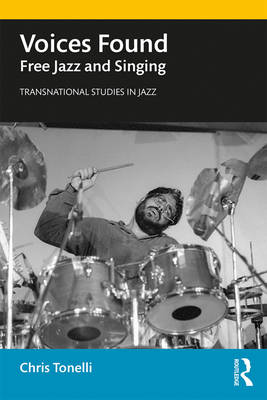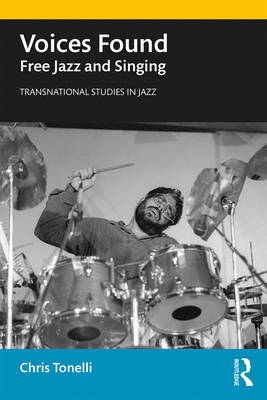
- Afhalen na 1 uur in een winkel met voorraad
- Gratis thuislevering in België vanaf € 30
- Ruim aanbod met 7 miljoen producten
- Afhalen na 1 uur in een winkel met voorraad
- Gratis thuislevering in België vanaf € 30
- Ruim aanbod met 7 miljoen producten
Omschrijving
Voices Found: Free Jazz and Singing contributes to a wave of voice studies scholarship with the first book-length study of free jazz voice. It pieces together a history of free jazz voice that spans from sound poetry and scat in the 1950s to the more recent wave of free jazz choirs. The author traces the developments and offers a theory, derived from interviews with many of the most important singers in the history of free jazz voice, of how listeners have experienced and evaluated the often unconventional vocal sounds these vocalists employed. This theory explains that even audiences willing to enjoy harsh sounds from saxophones or guitars often resist when voices make sounds that audiences understand as not-human.
Experimental poetry and scat were combined and transformed in free jazz spaces in the 1960s and 1970s by vocalists like Yoko Ono (in solo work and her work with Ornette Coleman and John Stevens), Jeanne Lee (in her solo work and her work with Archie Shepp and Gunter Hampel), Leon Thomas (in his solo work as well as his work with Pharoah Sanders and Carlos Santana), and Phil Minton and Maggie Nicols (who devoted much of their energy to creating unaccompanied free jazz vocal music). By studying free jazz voice we can learn important lessons about what we expect from the voice and what happens when those expectations are violated. This book doesn't only trace histories of free jazz voice, it makes an attempt to understand why this story hasn't been told before, with an impressive breadth of scope in terms of the artists covered, drawing on research from the US, Canada, Wales, Scotland, France, The Netherlands, and Japan.
Specificaties
Betrokkenen
- Auteur(s):
- Uitgeverij:
Inhoud
- Aantal bladzijden:
- 198
- Taal:
- Engels
- Reeks:
Eigenschappen
- Productcode (EAN):
- 9781138341036
- Verschijningsdatum:
- 2/12/2019
- Uitvoering:
- Paperback
- Formaat:
- Trade paperback (VS)
- Afmetingen:
- 152 mm x 229 mm
- Gewicht:
- 285 g

Alleen bij Standaard Boekhandel
Beoordelingen
We publiceren alleen reviews die voldoen aan de voorwaarden voor reviews. Bekijk onze voorwaarden voor reviews.











